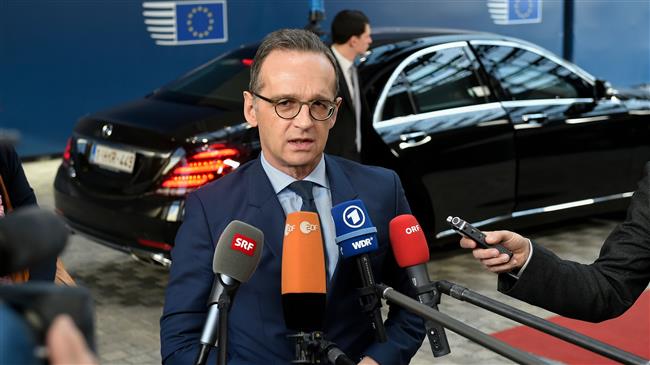Germany extends ban on arms exports to Saudi Arabia
Germany has extended a ban on arms exports to Saudi Arabia imposed over the kingdom’s deadly campaign against Yemen and the murder of dissident journalist Jamal Khashoggi.
"We in the government have decided to extend the export ban until the end of March, and we have done this with an eye on developments in Yemen," German Foreign Minister Heiko Maas told journalists in Berlin on Wednesday, confirming last week’s reports.
"We believe that the Yemen war must end as soon as possible."
In November 2018, Germany announced it would no longer issue arms export licenses to Saudi Arabia until March 9, following the murder of Khashoggi in Istanbul on October 2 that year.
Saudi Arabia launched the devastating campaign in March 2015, with the aim of bringing the government of former President Abd Rabbuh Mansur Hadi back to power. According to a report by the Armed Conflict Location and Event Data Project (ACLED), a nonprofit conflict-research organization, the Saudi war has claimed the lives of about 56,000 Yemenis so far.
"Not only will there not be any permits issued until the end of this month, but products with permits already granted will also not be delivered," Maas added.
Germany’s decision to halt arms sales to the kingdom has drawn criticism of European partners, including France and Britain, due to the fact that the move has impacted joint defense projects.
Last month, Britain warned that the new policy damages Berlin’s security commitments while adversely affecting the British military industry.
German magazine Der Spiegel reported on February 19 that British Foreign Secretary Jeremy Hunt had raised the issue of arms exports in a letter to his German counterpart.
“I am very concerned about the impact of the German government’s decision on the British and European defense industry and the consequences for Europe’s ability to fulfill its NATO commitments,” Hunt wrote.
Yemen faces ‘highest burden’ of cholera globally: WHO
Settlement expansion proves Israel cannot be trusted for any peace deal: Hamas
VIDEO | Press TV's news headlines
Trump 2.0 and its possible implications on Ukraine war, NATO and Europe
Israeli commander exposed troops to resistance fire to steal plasma screens
Iran lifts ban on WhatsApp, Google Play
VIDEO | Palestinian childhood under threat
Yemeni forces strike Israeli military site with hypersonic missile











 This makes it easy to access the Press TV website
This makes it easy to access the Press TV website